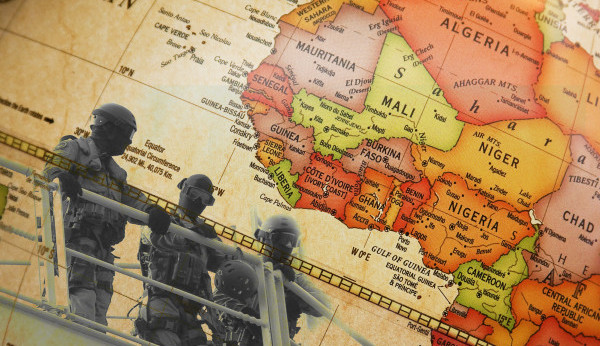Japan P&I Club has issued report in order to provide information on piracy at Lagos/Port Harcourt in Nigeria.
The waterways/sea is being monitored by the Nigeria Naval Police and other enforcement Agents. The Naval Police patrol along the coast on 24hrs. However, it is essential to warn that pirates are very active in the region. We dealt with pirates attack last year. They used to hijack the tankers, switch navigation equipment basically AIS and other communication system. Then, they transship the cargo into other tanker before releasing the vessel few days later. It is important that in the Gulf of Guinea, the crew remains particularly vigilant.
Measures during waiting time
In case of congestion in the port, the vessel should stay out of reach of pirates tug. In no event, operators should accept STS operation, except if application is made to the local authorities and the area secured. One issue your insured might anticipate is that of congestion at the port which could entail the vessel having to wait on the roads (or at Bonny inner anchorage if calling at Port Harcourt / Onne) for some time. This will usually depend on the type of cargo being carried; container vessels and tankers do not have so many problems in this regard as they usually have preference / priority over general cargo / bulk vessels.Should there be such a waiting time, the Master is advised to stay as far away as possible from the FWB in order that the possibility of any pirates boarding the vessel is greatly minimised.
There have been incidents of piracy attacks off Lagos / Bonny (Bight of Benin), but these have mainly occurred on tankers with low freeboard and small off-shore support craft. However, the vessel should take all appropriate means to prevent unauthorised boarding either at sea, at the anchorage or whilst alongside. (Use of razor wire, increased look-outs, pressurized fire main/hoses, restricted / secure access to accommodation, cargo spaces and deck stores, increased deck patrols etc. etc.). The anchorage areas and coastal waters are supposedly patrolled by the Nigerian Navy. No authorized persons should be allowed on board during the waiting time. Alternatively it is possible for vessels to anchor at the SAA (Safe Anchorage Area) to West of Lagos where ships may anchor in a specified area that is guarded / patrolled by vessels from a private security company (OMS) working in collaboration with the Nigerian Navy. Once alongside access to the vessel should be controlled 24/24 in order to prevent any unauthorised entry and /or attempted robbery. Any crew venturing ashore should be vigilant against personal attack / robbery.
If taking bunkers in the area the Master/Agents need be very careful and insist on using only very official channels. There is some oil (usually bunker grade) theft in the area at the moment and even though not related, taking bunkers illegally could carry serious consequences. Any STS operations (bunkers or cargo) should be announced / declared to the official authorities so that they can be properly monitored. Several vessels have been attacked during undeclared STS operations being carried out far off-shore away from any supervision or surveillance.
With regards to piracy there have been some attacks in the Bight of Benin and Gulf of Guinea (even as far south as off Angola). These attacks are usually highly coordinated and have generally been on small tankers with a low freeboard that are carrying MGO and / or IFO or on off-shore vessels. In such cases it is the highly valuable cargo that is targeted with the vessel being released some days later once some or all of the cargo has been discharged to another waiting vessel / barge (for subsequent sale on the black market). The pirates can be extremely violent and such criminal activity is almost exclusively carried out by Nigerian based organisations, doubtlessly with the collusion and support from well-organised business and political connections most probably situated in Nigeria.
Further details may be found by reading the report below
Source: Japan P&I Club



































































